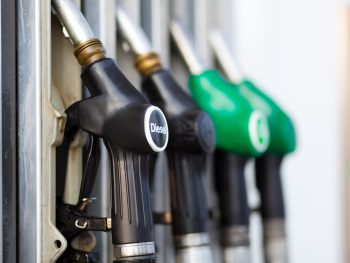Premium fuels with low ethanol levels increase efficiency and cut costs, study finds
Fleets switching to premium fuels with lower ethanol levels could benefit from longer vehicle ranges and reduced costs, a new study suggests.

The study found premium fuels with lower ethanol levels delivered some 10% more range compared to standard fuels tested
Carried out by Trakm8, the research found that premium fuels with lower ethanol levels deliver approximately 10% more range compared to standard fuels tested.
Greener E10 petrol (95 RON) became the standard grade of petrol at UK pumps in September 2021 in a government move to reduce CO₂ emissions. But the new study highlights concerns at the time that increasing ethanol content in fuel reduces its energy density, making it less effective and efficient for consumers.
Premium E5 fuels (97+ RON), which remain available in the UK, have kept their lower ethanol level and Trakm8 says this provides drivers with a more efficient fuel source. It also says such fuels offer other advantages, including reducing carbon deposits in the engine and providing cleaning properties – said to be able to prevent failures of components such as fuel injectors, turbochargers, catalytic converters, and keep inlet ports clearer of carbon deposits, especially in vehicles utilising direct injection.
Its analysis also found that using “reasonably priced” premium fuels for a year at an average of 10,000 miles could save fleets around £80 at the pump.
And it claims that by reducing fuel-related repair bills and decreasing CO2 emissions by up to or even in excess of 100kg, there are benefits to the environment too.
Trakm8’s tests used a 2018 1.5-litre automatic BMW 1 Series, driven solely in Comfort mode with stop-start enabled. The test vehicle had 40k miles on the clock and only ever ran on 95 RON prior to the testing.
Testing was carried out in various driving conditions, including runs at 70mph on dual carriageways, an uphill test on a gradient hill, and a stop/start test around a block.
Specific drive cycles were conducted, and comprehensive data on the management of fuel by the vehicle was logged, including ambient air temperature, barometric pressure, injector duty cycle, injection on time, and fuel pump duty cycle.
The study compared three fuel types: E10, E5 and E0. All were purchased from locations within a two-mile radius. Tesco supplied E10 and E5, while Esso provided E0, which was chosen due to its lower ethanol content. The engine control module’s adaptation was reset before each fuel type was tested.
A spokesperson for the company said: “Trakm8’s study clearly demonstrates that premium fuels with lower ethanol levels offer significant advantages to consumers. Not only do these fuels provide a more efficient range, but they also lead to potential savings at the pump and reduced CO2 emissions. By choosing a fuel with lower ethanol content, consumers can optimise their vehicle’s performance, minimise repair costs, and contribute to a cleaner environment.”












